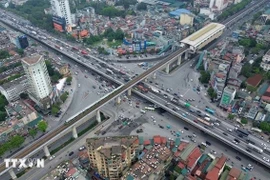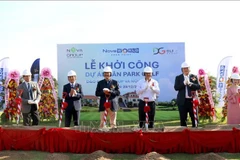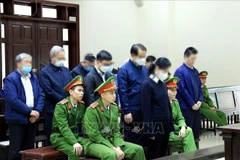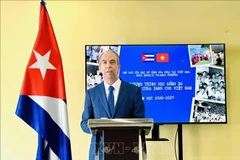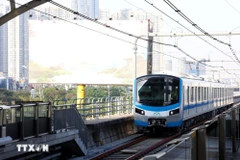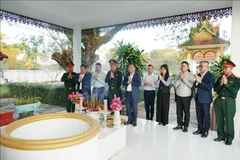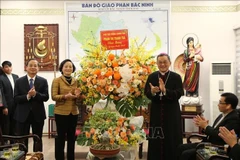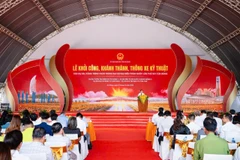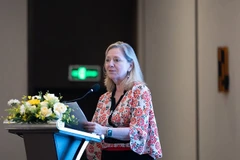Hanoi (VNA) - Following a pilot phase, Hanoi is expected to officially launch its integrated electronic ticketing system for the public passenger transport network through an IT service rental model on September 2.
This system is envisioned to go beyond public transportation, as it will connect with other types of transactions and contribute to the development of a smart mobility ecosystem in the city.
Multiple advantages of electronic ticketing
With the goal of enhancing user experience and reducing operational costs, Hanoi’s transport authorities have identified the implementation of an automated ticketing system as a top priority.
According to a representative from the Hanoi Public Transport Management and Operation Centre under the municipal Department of Construction, since late November 2023, the centre has coordinated with service providers to pilot the e-ticket system on 25 bus routes, with various types of services such as regular buses, Bus Rapid Transit (BRT), and electric buses, with different capacities and extensive coverage across radial, urban, and suburban routes. This wide scope ensures the system's overall universality, facilitating comprehensive evaluation at the end of the pilot phase.
In addition to issuing physical electronic cards (chip-based cards), in April 2024, the centre launched the “The ve giao thong Ha Noi” (Hanoi Transport Ticket) mobile application which features QR code-based virtual tickets, applicable for monthly passes and free bus travel cards, with an aim of offering greater convenience for passengers and reducing card issuance costs.
According to the municipal Department of Construction, the pilot implementation of the e-ticket system has shown several key advantages. It aligns well with both the national and city-level digital transformation strategies and serves as a foundational component for building a smart transportation system by gradually developing an integrated e-ticketing network.
The pilot phase also enables government agencies to collect critical data that supports policy-making, operational management, and faster, more effective decision-making in overseeing public transport services. It helps minimise revenue losses, reduces fare evasion and counterfeit tickets, and enhances transparency for public transport service providers.
For passengers, the system facilitates cashless payments and offers online registration and renewal for monthly passes, thus helping save both time and effort.
Citywide integration to be rolled out
The department said the city has now basically completed the building of mechanisms and policies necessary to advance the smart ticketing system.
The capital city plans to officially launch the fully integrated electronic ticketing system on September 2, under a comprehensive leasing model covering all components, including on-board ticketing devices, handheld ticket validators, central server systems, and management software.
According to the proposed plan, the integrated e-ticket will be rolled out across the entire bus network in 2025, followed by integration with metro lines such as Cat Linh – Ha Dong, Nhon – Hanoi Station, and other transport modes in 2026. At the end of the lease period, all equipment, data, and software usage rights will be transferred to the city. This approach is expected to save both time and costs in implementation.
Deputy Chief Representative of the Japan International Cooperation Agency (JICA) Vietnam Fukuda Chihiro said the integrated ticketing system enhances operational efficiency and transparency, making traveling by train more convenient and reducing the workload of fare collection staff. At the same time, it helps prevent revenue loss and fraudulent activities by enabling real-time fare management through digital revenue data.
Besides, it significantly improves user convenience, by optimising public transport infrastructure, making it easier and more comfortable to use. This, in turn, raises passenger satisfaction and encourages long-term ridership growth.
The system also supports better transportation policy and operational planning. By analysing usage data, authorities can monitor the performance of different routes and peak hours, adjust train schedules, design rail lines more effectively, and review fare strategies, contributing to the development of a more efficient operation mechanism, he added./.



